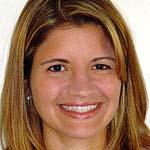The Elephant in the Room: Nutrition Scope of Practice
Where do fitness professionals draw the line when it comes to dishing out diet and nutrition advice?
Fitness professionals are increasingly bombarded with nutrition questions from clients, friends and distant acquaintances. From the merits of specific vitamins and performance-
enhancing supplements to popular diets, nutrition to improve athletic performance and how to eat to lose those last 5 pounds, nutrition information is in demand. And who better to give it than a trusted fitness expert, who, the consumer supposes, is equally well versed in nutrition?
The question often arises: When is it appropriate for fitness professionals to respond to these requests, and when should they refer the client to a registered dietitian? It turns out trainers aren’t so sure. When Beth Wolfgram, MS, a professor, registered dietitian and personal trainer, asked audience members at the IDEA Personal Trainer Institute™ in Orlando last October what they would do in response to several case scenarios, the response was mixed: “The trainers in the room were split on several of the examples, which demonstrates how vast the gray areas are in this arena,” IDEA Fitness Journal editor in chief Sandy Todd Webster wrote in
her blog of the event (see the sidebar “Answering the Tough Questions” for several difficult nutrition questions fitness professionals often encounter). This article looks at the many-splintered issue of scope of practice (SOP) as it relates to nutrition advice.
Fitness and Nutrition
Go Hand in Hand
Without a clear understanding of what is and is not within the fitness professional’s scope of practice, personal trainers may miss an important opportunity to provide education and guidance to a client. If they say too much, they could put the client and themselves at risk.
“For the longest time we were taught as trainers to avoid this topic and always refer [nutrition] questions to a doctor or dietitian; however, our approach has had to change,” Fabio Comana, MA, MS, exercise physiologist, spokesperson for the American Council on Exercise and faculty member at the University of California, San Diego, and San Diego State University, wrote in an e-mail. “We need to adopt a firm but consistent stand that
remains within our scope of practice, yet provides credible information so our clients can make their own informed decisions.”
Comana noted that in many situations making a referral to a physician or dietitian is neither necessary nor practical, as many questions are within the trainer’s scope of practice, and clients may not have the resources, access or motivation to seek out specialized help. When trainers defer all nutrition questions, many people will get their nutrition information from often unreliable sources like consumer publications and salespersons at supplement stores, he added.
“If a trainer is not talking nutrition, he is doing his clients a disservice,” wrote Christopher Mohr, PhD, RD, CSSD, a registered dietitian and owner of Mohr Results Inc., a nutrition and fitness company that teaches people how to lose weight permanently. “The key is that talking nutrition and providing medical nutrition therapy are two different things.” Medical nutrition therapy, recognized by Medicare as the domain of the registered dietitian, involves providing individualized nutrition assessment and dietary recommendations to help manage disease.
Defining the Scope of Practice
The registered dietitians interviewed for this article all agreed that fitness professionals could—and should—share general nonmedical nutrition information with their clients, without need for a referral. While Ohio’s scope-of-practice guidelines are very similar to those of other states with laws addressing this issue, Ohio does a particularly good job of describing what is and what is not within the scope of practice of nonlicensed individuals. Some in-scope examples published by the Ohio Board of Dietetics include giving cooking demonstrations; recommending use of the various tools and features of MyPyramid; providing examples of healthy snacks; talking about carbohydrates, proteins, fats, vitamins, minerals and water as essential nutrients needed by the body; describing how nutrient requirements vary through the life cycle; giving statistical information about the
relationship between chronic disease and the excesses or deficiencies of certain nutrients; and providing information about
nutrients contained in foods or supplements (Ohio Board of Dietetics 2004).
Individualized nutrition recommendations are outside the fitness professional’s scope of practice. “Specific recommendation of dietary advice may seem straightforward to the fitness professional, and harmless, but that’s not necessarily the case,” warned Hope Barkoukis, PhD, RD, LD, an associate professor in the School of Medicine nutrition department of Case Western Reserve University and chair of the SCAN (Sports, Cardiovascular, and Wellness Nutrition) practice group of the American Dietetic Association. “The reality is that there are numerous factors to consider for all individualized dietary advice, even vitamins and minerals. For instance, factors including one’s age, full medical history, current prescriptions; even a seemingly ‘simple’ individual nutrition recommendation has
a multiplicity of impact factors that can [fall] within the realm of medical nutrition therapy.”
Several of the dietitians offered the following analogy to clarify scope of practice: just as a person seeking an individualized exercise program is best served by the personal fitness trainer, a person seeking individualized nutrition information or counseling is best served by the registered dietitian. “Creating optimal health and fitness in our clients is indeed about the fitness professional and RD working together to appreciate this complexity,” said Barkoukis. “That doesn’t happen when either profession exceeds SOP.”
Beyond avoiding individualized nutrition recommendations, the fitness professional’s scope of practice can be further elucidated by considering state policies and regulations, education and training, and competencies and skills.
State Laws and Regulations
Most states have laws regulating the practice of dietetics. Licensure is required in 37 states, the District of Columbia and Puerto Rico. In these cases, statutes include an explicitly defined scope of practice for a nutrition professional. For example, the Ohio statute limits the following activities to licensed dietitians:
- nutritional assessment to determine nutritional needs and to recommend appropriate nutritional intake
- nutritional counseling or education as components of preventive, curative and restorative health care
- development, administration, evaluation and consultation regarding nutritional care standards (Ohio Board of Dietetics 2004)
Individuals who practice the profession without a license and who are not specifically exempt are subject to legal action. Seven states require certification in order to use titles such as dietitian or nutritionist. Individuals must meet specific requirements to be eligible for certification; however, noncertified individuals can still practice the profession. In states without licensure or certification, anyone can legally provide nutrition services, though it may be considered unprofessional or unethical for individuals without the appropriate education and training or competencies and skills to do so (Commission on Dietetic Registration). To see where your state falls, check out the sidebar “Regulation of Dietitians and Nutritionists by State.”
While the laws for each state contain somewhat different language, Ohio’s statute prohibiting unlicensed practice of dietetics may serve as a useful example to help clarify scope of practice for “nonlicensed individuals”; that is, individuals with occasion to discuss nutrition but without a registered dietitian credential and state license where necessary. Unlicensed Ohioans can provide “general nonmedical nutrition information,” which includes but is not necessarily limited to the following:
- principles of good nutrition and food preparation
- food to be included in the normal daily diet
- essential nutrients needed by the body
- recommended amounts of essential nutrients
- actions of nutrients on the body
- effects of deficiencies or excesses of nutrients
- food and supplements that are good sources
of essential nutrients
Unlicensed individuals also may freely disseminate nutrition information, including information on vegetarian diets, alternative diet philosophies, government or agency nutrition literature, books and articles (Ohio Board of Dietetics 2004). More information on state-specific statutes and regulations is available at www.cdrnet.org/certifications/licensure.
Education and Training
Importantly, the limitations to scope of practice dictated by state laws trump the other determinants of scope of practice, such as education and training or expertise and skill level. In states without legal restrictions, fitness professionals may be legally allowed to offer nutrition services, as long as the services offered are consistent with their education and training.
Most fitness certifying bodies and professional organizations include a statement outlining the professional’s scope of practice. For example, IDEA’s statement notes that fitness professionals do not prescribe diets or recommend specific supplements, but they do provide general information on healthy eating
according to MyPyramid and the federal dietary guidelines and refer clients to a dietitian or nutritionist for specific diet plans.
Beyond their fitness-related certification, many fitness professionals opt to receive additional training or certification in nutrition. In these cases, they have spent many hours learning about nutrition and likely have expanded their ability to effectively and accurately answer clients’ questions. While this education may broaden their expertise, it is still important to follow the scope-of-practice guidelines set forth by the certifying or professional organization that offered the advanced training, and also to appreciate the limitations to education and training.
“While some fitness professionals may have as much knowledge as an RD on specific fitness-related areas of nutrition, they do not have the full training and expertise that an RD does to consider all aspects of a client’s nutritional history and status to ensure the advice is appropriate for that particular person,” wrote Jennie McCary, MS, RD, LD, the wellness manager for the Albuquerque Public School District and president of the New Mexico Dietetic Association. A registered dietitian has received a bachelor’s degree in a health-related field; completed an accredited, supervised clinical practice program (900 or more hours); passed the registration exam for dietitians; and participated in 75 hours of continuing education per 5-year recertification cycle. The most highly qualified sports dietitians also hold the Certified Specialist in Sports Dietetics (CSSD) credential, the only certification based on competency in sports, exercise and nutrition and practical experience.
Pam Popper, PhD, ND, a naturopathic doctor with a doctorate in nutrition and a certified personal trainer, summarized it this way: “It is important for everyone in the health business to be cognizant of remaining inside your scope of practice; however, it is also very important to be constantly learning in order to expand that scope.”
Cathy Leman, MA, RD, LD, the founder and owner of NutriFit Inc., encourages fitness professionals who are passionate about nutrition and would like to do more for clients to take it one step further and pursue a degree in nutrition and the RD credential: “There’s room for excellence in both the nutrition and fitness fields, as well as respect for each other.”
Competencies and Skills
Each trainer should work within his or her own set of competencies and skills. For example, while Mohr holds a CSSD credential and has a breadth of experience working with athletes and people trying to lose weight, he said he would not feel comfortable advising a client suspect for an eating disorder, for example. Recognizing your own limitations “doesn’t show you’re not
educated; it shows you’re confident enough in your scope of practice,” he said.
Wolfgram recommends that when discussing nutrition, fitness professionals ask themselves, “Is this within my professional and personal boundaries, expertise and skills?” If not or if the fitness professional is unsure, referral is probably warranted.
Fitness professionals reach a large number of people who are interested in improving their health and well-being. As nutrition and exercise are both critical to achieving optimal health, fitness professionals are encouraged to share nutrition information with their clients. In those cases in which a client requests individualized nutrition information or when a client has a medical diagnosis that requires special nutrition recommendations, referrals to a physician and/or a registered dietitian for an individualized eating plan may be the best course of action. The fitness professional still plays an important role in providing support and encouragement to follow the recommended plan. Ultimately, when health professionals work together to help people reach their goals, everyone benefits: the client receives the best care while both professionals strengthen their networks and increase their credibility.
Any issue will have at least two sides to explore. More often than not, numerous viewpoints crop up, which led us to wonder what IDEA members and fitness professionals think about scope of practice as it relates to doling out nutrition advice to clients. We posed the following question on Twitter and Facebook: “What do you see as the advantage or disadvantage of expanding the borders on the current nutrition scope of practice for personal trainers?” Read on to find out what others like you think about the topic, and feel free to add your own insight at www.ideafit.com.
“Dietetics is a very involved practice, and a single class in nutrition can’t possibly encompass all one needs to know to provide comprehensive nutrition counseling. Now, having taken several college-level nutrition courses (one that dealt specifically with diabetes), I would have to say that I think personal trainers could provide very basic nutrition advice. ACE [American Council on Exercise], which is my certifying body, teaches us to only give nutrition advice based on the current food pyramid. If we could adequately educate trainers in this area, they might be able to help their clients understand and use [MyPyramid]. I do not think that a trainer who isn’t also an RD/RDT is really qualified to deal with clients who have special needs.”
—Cori Karis,
Wichita Falls, Texas
“As an ACE- and ACSM [American College of Sports Medicine]-certified personal trainer since 1995, I decided 4 years ago to go back to school to become a registered dietitian because I knew that I could not legally give nutrition advice, nor did I want to, [as I am] not educated in the field of nutrition. If it takes a 4-year degree and a 1-year internship in order to become a dietitian, then there is no one class that will educate trainers enough to properly give diet advice. Also, when you factor potential diseases into the equation, a personal trainer without the RD credential is not qualified to give advice. Leave the training to the trainers, the teaching to the group fitness instructors and the dietetic advice to the dietitians.”
—Heather Kaufman, dietetic
intern, Cal Poly San Luis Obispo
“I think you need to be careful when expanding the scope of practice into nutrition. I believe in trainers giving nutrition coaching, but not prescribing specific meals, especially not supplements. Personal trainers do not have the deeper knowledge a physician, naturopath or pharmacist has to avoid contraindications and drug interactions. When speaking to clients about supplements, I always tell them to speak to their primary care provider, do their own research and [understand] that everything I tell them is my own opinion, not what they should do.
“On the other hand, your scope of practice is limited to your knowledge base and your experience. If you are a registered dietitian and personal trainer, then you would be using your dietitian’s scope when developing a meal plan.”
—Alfred Ball, kinesiologist and
founder, Lifemoves Health & Rehabilitation, Vancouver, British Columbia
“I think more education in nutrition should be mandatory. It is a bigger piece to the fitness puzzle than the due it is given, and too many times trainers are giving out quick fixes. There is a reason why nutritionists/dietitians attend years of schooling. It is a science, and not to be taken lightly. I would be in favor of more mandatory education with strict guidelines on what trainers can/cannot advise clients.”
—Pam Benchley, adjunct
professor, State University of New York College at Fredonia,
department of sport management and exercise science
“If properly educated in nutrition, I like [the idea of expansion]. I do my best to educate my clients on balanced meals and the importance of protein/fiber in their diets (most are over 80 years old and think crackers and coffee is breakfast). However, I don’t have any advanced nutrition training or certifications.”
—Shari Rutner Kalkstein, PTA,
CSCS, HFS, CPT, Davie, Florida
“I believe you have to expand or be flexible with nutrition [information]. Exercise and nutrition go hand in hand when dealing with fat loss, performance or general health. Take away the nutrition aspect and you basically take away a valuable piece to the success of the client and trainer. It is comparable to giving a carpenter only four tools to build a house. Sure, the house can be built, but [building] it will be more time-consuming, exhaustive and frustrating.
“The industry should regulate the requirements for becoming fitness professionals, rather than focusing on the content of their practice. Make the requirements more stringent because the content carries more responsibility. If the regulation is in place, the content of textbooks and studies should focus on growing the profession as a viable career.”
—John Izzo,
“Yes, I definitely know that I can do more [in the area of nutrition]. Clients depend on us for advice in weight loss and fitness management. Current rules hinder us.”
—Carol Dunlop, owner,
Optimum Body Sculpting,
Woodstock, Georgia
“This would be a huge advantage, given how great a role nutrition plays in weight loss, and so many people hire trainers to do just that. Most people can’t afford a trainer and a nutritionist. Trainers need to have accurate information to relay to clients.”
—Milda Simonaitis, MA,
Chicago
In an unscientific survey, we asked several registered dietitians, personal trainers and “hybrids” (those who do both) how they think fitness professionals should respond to some common nutrition questions they often are tempted to answer but that may or may not be within their scope of practice. Here’s what they told us:
Questionable Action
Recommend the DASH diet to a client recently diagnosed with hypertension.
BEST Action
“Recommending the DASH diet is medical nutrition therapy. Reviewing the principles behind the DASH diet and discussing the scientific evidence behind it and then letting the client decide whether or not to use it would be more appropriate,” says Laura Kruskall, PhD, RD, CSSD, FACSM, director of nutrition sciences at the University of Nevada at Las Vegas, recognized sports dietitian and fellow of the American College of Sports Medicine. This advice also holds true when responding to questions about other diets.
Beth Wolfgram says that if a diet were totally unsafe, she would let the client know that she didn’t really recommend it; otherwise, she suggests laying out the pros and cons based on the scientific research and letting the client decide. If the client requests specific recommendations to follow a particular diet or eating plan, referral is warranted.
Questionable Action
Describe carbohydrate loading and recommend a carbohydrate-loading protocol.
BEST Action
Describing the principles of carbohydrate loading fits within the fitness professional’s scope of practice, but recommending a particular protocol is the domain of a sports dietitian, our experts agree.
Questionable Action
Ask a client to keep a food record for a few days and then review it to identify major imbalances and refer if needed.
BEST Action
Most of our experts felt that analyzing a food record is nutrition assessment, and nutrition assessment is outside the fitness professional’s scope of practice. A fitness professional could refer the client to a registered dietitian for a consultation or suggest the client use an online diet tracker with analysis, such as the MyPyramid tracker at www.mypyramid.gov.
Questionable Action
Recommend specific foods to eat before and after working out.
BEST Action
The majority of our experts agreed that providing even simple specific food recommendations falls outside the fitness professional’s scope of practice, although discussing general principles on fueling the body and good sources of macronutrients like carbohydrates and protein is appropriate.
Questionable Action
Recommend that a pregnant woman take a folic acid supplement.
BEST Action
Recommending any supplement to a pregnant woman may not be a good idea, although the Centers for Disease Control and Prevention highly recommend that all women take a multivitamin containing folic acid. Instead, the fitness professional can describe why folic acid supplements are often recommended and encourage the client to discuss folic acid supplementation with her physician. Fitness professionals should follow a similar course for all supplements, including multivitamins. “Given how supplements are not regulated and how many multivitamins deliver megadoses, I always have them consult with their doctor first to ensure there are no contraindications,” says Fabio Comana.
Questionable Action
Suggest a client consume caffeine prior to an endurance competition to help improve performance.
BEST Action
Discussing the scientific evidence for caffeine as an ergogenic aid, including safety issues and potential side effects, would be appropriate, says Kruskall. Conversely, recommending a person take caffeine is not a good idea. Let the client decide whether or not to use it after the fitness professional provides an accurate review of the scientific evidence.
Questionable Action
Advise a client to cut 500 calories per day in order to lose a pound of weight per week.
BEST Action
Our experts were split on this one. Discussing the principles of energy balance (energy deficit) is appropriate, but telling a client how many calories to cut may be considered medical nutrition therapy, says Kruskall. How many calories a client should consume for safe weight loss depends on several factors, most importantly baseline caloric intake. Comana recommends providing clients with the general rule of thumb not to reduce intake by more than 15%, based on adherence research.
- The experts interviewed for this sidebar were Hope Barkoukis, PhD, RD, LD; Jennie McCary, MS, RD, LD; Roberta Anding, MS, RD, LD, CSSD, CDE; Christopher Mohr, PhD, RD, CSSD; Laura J. Kruskall, PhD, RD, CSSD, FACSM; Troy Malson, MS, CSCS; Sean T. Mooney, CSCS; Pamela Popper, PhD, ND; Cathy Leman, MA, RD, LD; Beth Wolfgram, MS, RD, CD, CSCS; Fabio Comana, MA, MS; and Stefanie Tierney, MS, RD, LD.
Licensure
Alabama
Alaska
Arkansas
Delaware
District of
Columbia
Florida
Georgia
Hawaii
Idaho
Illinois
Iowa
Kansas
Kentucky
Louisiana
Maine
Maryland
Massachusetts
Michigan
Minnesota
Mississippi
Missouri
Montana
Nebraska
Nevada
New Hampshire
New Mexico
North Carolina
North Dakota
Ohio
Oklahoma
Oregon
Pennsylvania
Puerto Rico
Rhode Island
South Carolina
South Dakota
Tennessee
Texas
West Virginia
Certification
Connecticut
Indiana
New York
Utah
Vermont
Washington
Wisconsin
Neither Licensure nor Certification
Arizona
California
Colorado
New Jersey
Virginia
Wyoming
American Dietetic Association (www.eatright.org). Provides information about nutrition policies and ADA position statements, as well as the requirements to become a registered dietitian.
Sports, Cardiovascular, and Wellness Nutrition: a dietetic practice group of the American Dietetic Association (www.scandpg.org). Contains information about the Sports Dietetics Certification as well as a directory of dietitians specializing in sports nutrition.
Commission on Dietetic Registration (www.cdrnet.org/certifications/licensure). Provides links and an overview of each state’s laws regulating nutrition practices.
MyPyramid.gov (www.mypyramid.gov). Features an abundance of tools for clients to access in order to develop a healthy diet, based on government guidelines.
National Institutes of Health, Office of Dietary Supplements (http://ods.od.nih.gov). Includes information about commonly used dietary supplements.
Center for Food Safety and Applied Nutrition (www.fda.gov/Food). Provides the basics of nutrition, from food safety to supplement use, and general health information.
Institute of Medicine Food and Nutrition Board (http://iom.edu/CMS/3788.aspx). Publishes evidence-based and highly respected reports pertaining to a variety of nutrition-related issues, including childhood obesity, weight gain during pregnancy and Dietary Reference Intakes.
References
Ohio Board of Dietetics. 2004. Bulletin #8: General non-medical nutrition information. www.dietetics.ohio.gov/bulletins/bulletin8.pdf; retrieved May 26, 2009.
Visocan, B., & Switt, J. 2006. Understanding and using the Scope of Dietetics Practice Framework: A step-wise approach. Journal of the American Dietetic Association, 106 (3), 459–63.
Natalie Digate Muth, MD, MPH, RD
"Natalie Digate Muth, MD, MPH, RDN, FAAP, is a board-certified pediatrician and obesity medicine physician, registered dietitian and health coach. She practices general pediatrics with a focus on healthy family routines, nutrition, physical activity and behavior change in North County, San Diego. She also serves as the senior advisor for healthcare solutions at the American Council on Exercise. Natalie is the author of five books and is committed to helping every child and family thrive. She is a strong advocate for systems and communities that support prevention and wellness across the lifespan, beginning at 9 months of age."






